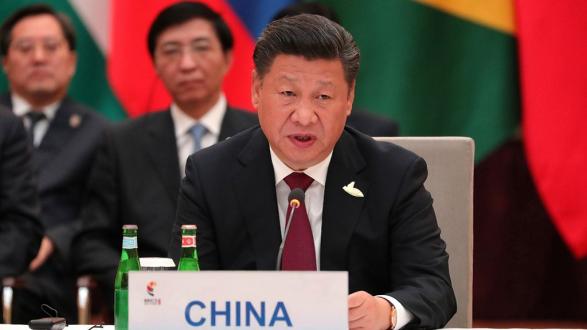The latest bout of strain in U.S.-Pakistan ties has resulted in the Trump administration deciding to suspend $1.3 billion in security assistance to Islamabad, with additional punitive steps reportedly under consideration. What are the implications for China and its decades-long "all-weather" partnership with Pakistan? We submit that the recent downgrade in U.S.-Pakistan relations will present both opportunities and challenges for Beijing.
Over the long term, further estrangement in U.S.-Pakistan ties presents Beijing with an opportunity to promote a new model of international development to replace the dominant U.S. model. As part of China’s geo-economically ambitious "One Belt, One Road" initiative, Beijing preaches "wide consultation, joint development, and mutual benefits" in regional cooperation. This has won support from Pakistan, as demonstrated by Beijing’s success in the implementation of the China-Pakistan Economic Corridor—the flagship program of the Belt and Road Initiative.
The progress of the corridor has already begun yielding substantial dividends in long-term planning, power generation, transport enhancement, port and industrial park development, and people-to-people exchanges. On January 29, the two sides took the first major step towards completing the corridor by inaugurating the Gwadar economic free zone, meaning that the infrastructure in that port area can now support some of the demands of regional trade. China's new approach coincides with an advantageous period in which U.S. influence seems to be eroding in the region.
China may look to capitalize on reduced U.S. security cooperation with the Pakistani military by more freely seeking to shape Pakistan's counterterrorism agenda in ways tailored to Beijing's interests.
Indeed, Afghanistan may in the future become involved in the corridor as well. In December, Beijing hosted the first trilateral summit between China, Pakistan, and Afghanistan to promote talks between Pakistan and Afghanistan.
Suspension of U.S. military aid also gives China the opportunity to focus on assisting the Pakistani military in counterterrorism operations, if it chooses. Beijing has traditionally sought to bolster Islamabad's capacity to serve as a hedge against India's rise. China has offered long-time support to Pakistan's missile and nuclear program, jointly produced the JF-17 fighter, and facilitated the sale of Chinese-built submarines to Pakistan, among many other areas of cooperation.
Beijing, however, also worries that Islamic extremist groups operating in parts of Pakistan and Afghanistan could pose a threat to China's neighboring Xinjiang province, with potentially destabilizing effects. Thus, China may look to capitalize on reduced U.S. security cooperation with the Pakistani military by more freely seeking to shape Pakistan's counterterrorism agenda in ways tailored to Beijing's interests.
On the other hand, Beijing certainly does not want to be left holding the bag on Pakistan, an infamously unstable country that has endured three coups and numerous periods of unrest throughout its tumultuous history.
By maintaining close ties to Pakistan, Beijing will continue to position itself at odds with growing U.S.-India relations.
In recent years, Beijing has benefited from the United States having to bear the brunt of the financial and other burdens of dealing with terrorist threats emanating from the region. If instability in Pakistan worsens, Beijing probably would not want to have to be the only external power working to stabilize the situation.
Moreover, the Trump administration appears to have prioritized bolstering relations with India over Pakistan. By maintaining close ties to Pakistan, Beijing will continue to position itself at odds with growing U.S.-India relations. With many other strategic priorities at stake, including in the South and East China Seas, vis-à-vis Taiwan, and on the Korean peninsula, Beijing might seek to avoid reinforcing U.S. and Indian incentives to strengthen their relationship on its western flank. Indeed, viewed from this perspective, Pakistan may increasingly seem like a geopolitical liability.
There are a variety of factors Chinese decision makers should consider in light of recent developments in U.S.-Pakistan relations. Both China and the United States could benefit from exchanging information on topics of mutual interest, namely on counterterrorism. They might also discover common ground on infrastructure development and trade. The Trump administration’s prioritization of India over Pakistan should not lead to a power politics mindset. Instead, both the United States and China should try to find ways to continue working together under the shifting paradigm.
_____________________
Derek Grossman is a Pacific Council member and a senior defense analyst at the RAND Corporation. He formerly served as the daily intelligence briefer to the assistant secretary of defense for Asian and Pacific Security Affairs at the Pentagon.
Keren Zhu is an assistant policy researcher at RAND and doctoral candidate at the Pardee RAND Graduate School. She previously worked as a research fellow at the Chinese Academy of Social Sciences.
This article was originally published in South China Morning Post.
The views and opinions expressed here are those of the authors and do not necessarily reflect the official policy or position of the Pacific Council.




